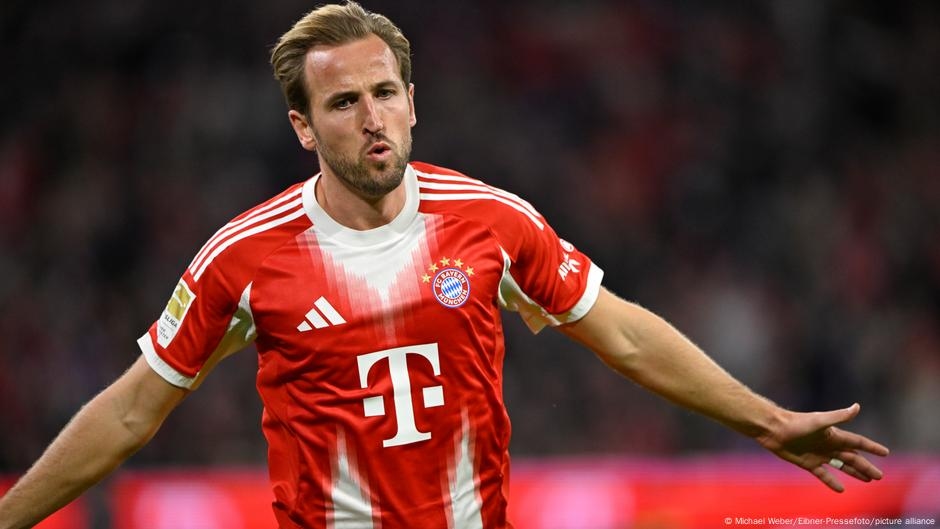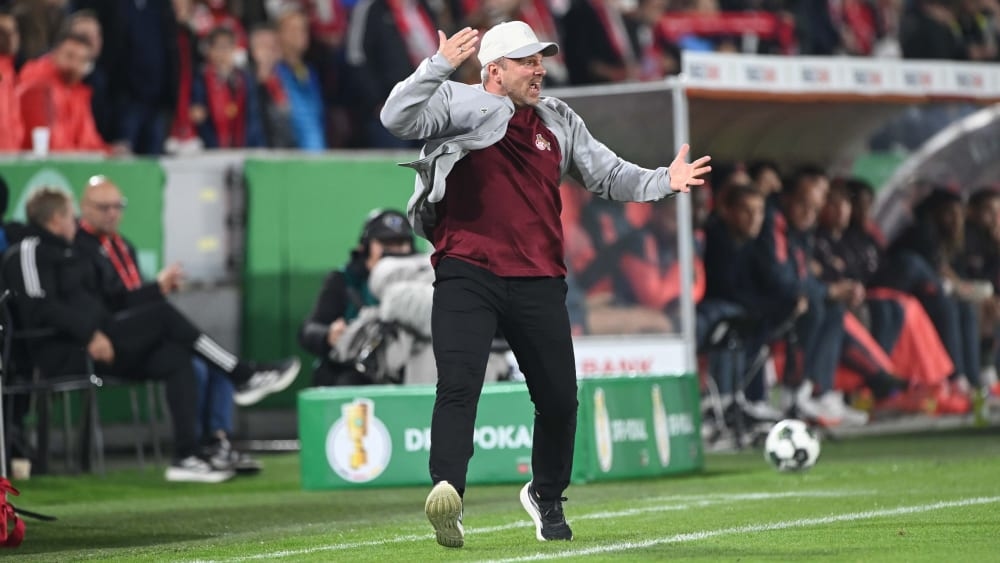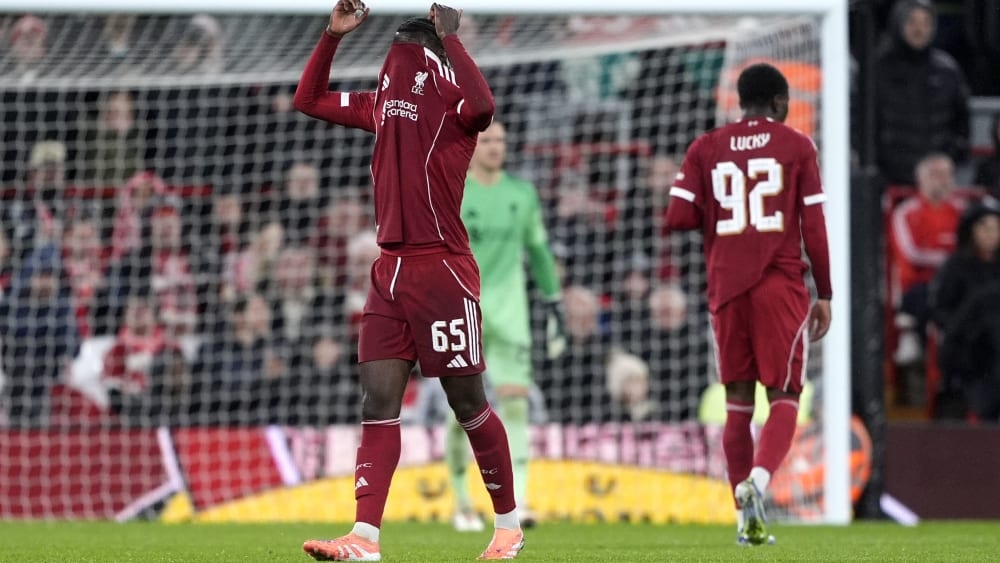Olympics | Cologne becomes the "Lead City" for the Olympics
Cologne, the sports city, still seems to be asleep. But it is becoming increasingly clear that the "million-strong village on the Rhine," as BAP frontman Wolfgang Niedecken once sang about it, could actually become an Olympic candidate – as the "lead city" of the project currently known as "Olympia on the Rhine and Ruhr," whose driving forces aim to be chosen as Germany's official candidate for the Olympic and Paralympic Games in 2036, 2040, or 2044 within a year.
Cologne's newly elected mayor, Torsten Burmester (SPD), who, as former CEO of the German Olympic Sports Confederation (DOSB), is well-connected in the sports world, is currently remaining silent on the matter. Local media are also only just beginning to delve more deeply into the details of this massive project, following a remarkable majority of 66 percent of Munich residents' support for their city's bid.
Compact spectacle"The result confirms the enthusiasm for the Olympic idea throughout Germany," said North Rhine-Westphalia's Minister-President Hendrik Wüst of the CDU, and immediately promoted his own state: "We are ready for a large and at the same time compact Olympic festival with new spectator records, spectacular sports venues, supported by the many sports enthusiasts in our state."
Because "Rhine-Ruhr" sounds rather "unsexy," as one high-ranking sports official confided, it's an open secret that "Cologne," with its cathedral, the Rhine, and perfume, will replace the current name before Christmas. The concept, operating under the slogan "The Powerhouse of True Sports" and spearheaded by the North Rhine-Westphalia State Chancellery, is intended to encompass large parts of the state. A total of 16 municipalities, from Dortmund to Recklinghausen, Gelsenkirchen, Duisburg, Wuppertal, and Oberhausen, are involved. Fifty of the 54 sports could take place within a 40-kilometer radius: This would even surpass the celebrated Games in Paris last year.
The concept for the sports venues is also a good fit: the Arena auf Schalke as a temporary swimming stadium for 60,000 people, handball in Düsseldorf in front of record crowds, gymnastics in Cologne's large multi-purpose hall. Aachen boasts one of the world's most modern equestrian facilities, and Duisburg is an internationally renowned stronghold for canoeing and rowing. "We stipulated in our concept that 95 percent of the sports venues already exist," explains Christoph Niessen, CEO of the North Rhine-Westphalia State Sports Federation. During the discussions, the German Olympic Sports Confederation (DOSB) "stated, based on the taxonomy of this first application stage, that we in North Rhine-Westphalia are actually at 100 percent, because not a single new, permanent sports venue will be built."
One idea, two placesWhat's missing, however, is an athletics stadium, which typically forms the heart of the Games and is intended to be connected to the Olympic Village. Planners are currently considering two locations: a former industrial site in Essen or farmland north of Cologne. Both areas are slated for urban development in the coming years, and the current design by a Darmstadt-based architectural firm could be implemented in a similar form at either location. The idea is to build an Olympic Village with housing for approximately 16,000 Olympians. The stadium could then be easily converted for residential and commercial use – the central grass area would become a small park.
This is where the more muted critics in North Rhine-Westphalia, compared to Berlin or Hamburg, come into play. Jörg Detjen, who deals with sports issues for The Left Party in the city council, welcomes the fact that a new district with urgently needed housing is to be built, but also says that the construction of the long-planned neighborhood is being "slowed down by the Olympics." "Currently, implementation is on hold. And if Cologne were to be awarded the village, people would have to wait until 2040 or 2044 before they could move in."
The German Federation for the Environment and Nature Conservation (BUND) fundamentally rejects the development of the unsealed area and demands a so-called "strategic environmental assessment" of the entire Olympic plans. This process would allow for the determination of "what impact a specific project has on soil, water, climate, air, nature, and people," says Dirk Jansen, BUND's managing director in North Rhine-Westphalia. Only in this way, he argues, can residents say "what impact such a major event has on the environment, and then decide: Okay, is this worth it to us?"
Greater transparency regarding costsIn politics and sports associations, there is a general willingness to focus on opportunities rather than concerns. The State Sports Federation (LSB) therefore refutes the frequently raised accusation that the costs are being hidden in a surprisingly €27.4 million increase in the sports facility construction budget. So far, just over €200,000 has been spent, and the public referendum, scheduled for April 19, 2026, will cost a low double-digit million euro amount. Since the exact sum is still being determined, a certain amount has been "reserved" in the sports facility construction budget, explains LSB Chairman Niessen. Money that is not needed "can then be used to further expand sports facility construction; funds are always needed for that."
Niessen generally advocates for greater transparency – but also for a more measured approach to the investments in the Olympic campaigns of all applicants: "You won't hear anyone from North Rhine-Westphalia say that this Olympic bid is cheaper than the previous ones. These days, you don't even hear that from the German Olympic Sports Confederation (DOSB)." It's quite possible that the Rhine-Ruhr campaign will reach a total of almost 20 million euros by the time of the referendum next April. Assuming the other three German applicants – Munich, Hamburg, and Berlin – spend a similar amount, the national selection process alone would have consumed up to 80 million euros in public funds, which could have been invested in schools or infrastructure.
Progress and DoubtThe question of whether this investment is worthwhile cannot be answered definitively. It's possible that the Olympic Games can indeed contribute to the development of cities and regions by creating transport routes and modernizing infrastructure. Furthermore, the Games are a festival that evokes special emotions, creates memories, and can change how a city is perceived both internally and externally.
Niessen believes that the people of North Rhine-Westphalia have "already won." As part of the Olympic bid, a sports facility funding program for grassroots sports has just been approved, with a budget of 600 million euros that can be accessed directly by clubs and municipalities. In light of such investments and progress, Dirk Jansen from the BUND (Friends of the Earth Germany) expresses an obvious sentiment: "We've been fighting for decades for car-free city centers and sensible mobility. But if we need the Olympic Games to implement necessary measures, then something is clearly wrong in this country."
nd-aktuell





